Politics is the most vital form of human arts or sciences. Politicians practically decide the fate of nations and people. That is why David Easton, a political scientist identifies politics as “authoritative allocation of values in a society.”
Despite its important role in the society and consequent interest and concern of people on it, even political scientists or politicians themselves find it hard to define politics. Defining politics or explaining it in a way that everyone understands easily is challenging. Politics can best be understood through an analogy of a dialogue between a music teacher and a student.
Such a perception often makes people apathetic towards politics or they get easily swayed away by alluring slogans of change. This has been evidenced by popular movements such as the uprising against the Panchayat politics and massive popular support for the 1990 multiparty democratic changes in Nepal.
“What is music?” a student of music kept on asking his teacher, an expert musician. Finally, the teacher retorted, “If you can’t feel it, I can’t explain it.” Just like the music, the essence of politics, too, is best felt and understood in everyday life rather than through textbook definitions or lectures of pundits.
Dirty Game?
Political parties and leaders only act as instruments of mobilizing and channeling popular expressions. It is also true that people’s experience, feeling, and understanding of politics vary. However, people today, in general, understand politics as a “dirty game.” And a politician is perceived as corrupt, unreliable and deceitful. Although there are some good exceptions, this profile regrettably projects a negative image on the most important human activity – politics and those involved in it.
Such a perception often makes people apathetic towards politics or they get easily swayed away by alluring slogans of change. This has been evidenced by popular movements such as the uprising against the Panchayat politics and massive popular support for the 1990 multiparty democratic changes in Nepal.
Politics and Leadership
Ancient Ram Rajya, Plato’s philosopher king and Aristotle’s statesman for the ideal state provide leadership profiles best represented by Ram, Gandhi, and Mandela. On the other hand, Mahabharat depicts rationalizations of the end justifying means. Kautilya and Machiavelli advocated the art of a successful ruler (leader) without worrying about how that success is achieved.
Today, not only the developing world, political corruption scandals in Japan and the role of the Mafia in Italy, contribute to the popular perception of politics as a dirty game and politicians as crooks. More importantly, such behavior, while despicable in society in general, has acquired acceptability in politics. If a common man lies, it is a lie but when a politician lies it is politics. Killing is punishable by law but when many people are killed in political violence it is politics. What kind of a value system can societies expect if it is being authoritatively allocated by a process commonly understood as ‘dirty’ ¬and key players as crooks and corrupt?
Transparency and Accountability
Democracy, though a good concept is a much misused and abused term. Some of the world’s worst tyrants have used the term to rationalize their own actions. The essence of democracy, like the essence of politics itself, will be felt, experienced and understood by the people in what political leaders actually do and not in what they claim in speeches. A truly functioning democracy should be marked by transparency and accountability.
The most important responsibility for creating people’s vested interest in democracy lies with those in positions of leadership themselves. They must be aware of the high degree of moral stand required for them to effectively fulfill the role and responsibility of leadership in a democracy. Democracy cannot survive at the hands of unethical leadership.
Rule of Law is another essential attribute of democracy. In countries where the practice of democracy is long, institutions built on democratic principles act as a counterweight to the forces of political corruption, lies, and deceit. Watergate scandal ultimately ousting the president of the United States of America demonstrates this built-in mechanism enforcing the primacy of the rule of law.
People’s vested interest
From the French Revolution to the rise of one or no party rules, most democracies have been short-lived. Institutionalization is now the most vital part of the global democratization process. However, as someone involved in the Nepali democratic movement suggests, this is only possible by creating “people’s vested interest in democracy.”
The most important responsibility for creating people’s vested interest in democracy lies with those in positions of leadership themselves. They must be aware of the high degree of moral stand required for them to effectively fulfill the role and responsibility of leadership in a democracy. Democracy cannot survive at the hands of unethical leadership.
Even in societies regarded as authoritarian, leaders such as Mao, Chou or Deng represent that breed of’ politicians with integrity, incorruptible political leadership dedicated to the national interest. These attributes of the top Chinese leadership could be one explanation for the gradual transformation of Communism in China while it collapsed in Russia and Eastern Europe.
Check and balance
The concept of civil government, consent of the governed and check and balance have led to the establishment of democratic institutions, most notably the three main pillars: executive, legislative and judiciary. How they function collectively as a cohesive system of governance and individually as independent instruments of the balance of power will ultimately affect the institutionalization of democracy in the newly democratizing societies like Nepal.
Political parties
In a representative democracy officials who make political decisions, formulate laws and administer programs of the public good are elected by the people, generally through party platforms. The quality and ability of these representatives and their subordinates from the civil service will largely determine the future of democracy. In a multiparty democracy, political parties constitute the most important institutions for popular mobilization and political organization. They must act as training institutes or schools of learning in democracy and democratic behavior. The role of the party is also crucial in disciplining their cadres in the party hierarchy or in positions of power in the government.
Media
Regarded as the fourth estate, the media has a vital role in institutionalizing democracy. By informing, educating and acting as the watchdog over actions of the government and other powerful institutions, media can act as a vital instrument of transparency and accountability. However, media has to be factual, objective and impartial.
Civil society
In the current predominantly state-centric global political and economic order, the ultimate power and authority of important political and economic decision making lie with the political process, especially the state. However, the nongovernmental organizations (NGOs) are emerging as important actors today. As non-partisan advocates of the people, NGOs could play an important role in the development of plural civil society and democratic culture.
People and elite
Democracy is best defined as the government of the people, by the people, for the people. Institutionalization of the democratic process in the newly democratizing societies will occur when people have the conviction that through the open exchange of ideas and expression of opinions, the truth will eventually win over falsehood. It is difficult for individuals to fight against a system, even more so in a society suffering from endemic poverty where people are preoccupied with their basic needs. They are, obviously, too weak to take on the system, even though they are well aware that the system is corrupt and those running it are crooks. This is where the role of the elite becomes so vital. Influential elites should intervene in arbitrary acts of the state.
International actors
Tremendous transformation in the mode of transport and communication has made global society highly interlinked and interdependent. A new aspect of this situation is the vital role of major international actors influencing the leadership of newly democratizing countries. More than their own national interest, keeping the international actors “in good humor” is becoming an important task of political leadership in countries like Nepal today. This is where those “key actors” claiming to champion the cause of democracy and human rights globally need to understand that their patronage must not further reinforce the already entrenched chemistry of corruption, lies and political leadership.
Obviously, the direct victims of such patronage, the silent majority, may not react instantly. But, when the situation becomes unbearable they will rise up in support of yet another political upheaval. In the process they would have lost faith not only in their own leaders and institutions but the whole electoral democracy if it only legitimizes the same old chemistry of corruption, lies and political leadership.
Corruption as cancer to the democratic body politic
Even in countries claiming to champion the welfare state and the rule of law, some individuals and institutions defy their mandate and ridicule principles they profess to promote. Normally, societies suffer from their own shares of human failings. However, in established democracies, such excesses are exceptions and not a rule. The underlying reason for this distinction lies in the practice of a rigorous process of legal and public scrutiny of people in leadership. But, in newly established democratizing societies, if not cleansed, political corruption could be the most dangerous cancer to democracy.
Conclusion
Machiavelli, in discussing Agathocles, a tyrant of Sicily, who successfully obtained his position through bloodshed, writes, “it cannot be called talent to slay fellow citizens, to deceive friends, to be without faith, without mercy, without religion; such methods may gain empire but not glory.” Recent fall of the Idi Amins, Pol Pots and Noriegas are important lessons.
For some time, crime and corruption may be concealed, violence and tyranny tolerated, voices of one individual or some individuals suppressed. Momentarily, it may seem that one can continue to lead through corruption and lies. It may even seem as though deceiving one individual or injustice to a few is not a big deal. But, sooner or later people will realize what a great philosopher once said, “If a leader cannot be truthful to an individual or give justice to a few individuals, how can he be expected to be truthful to the society or give justice to the nation as a whole?”


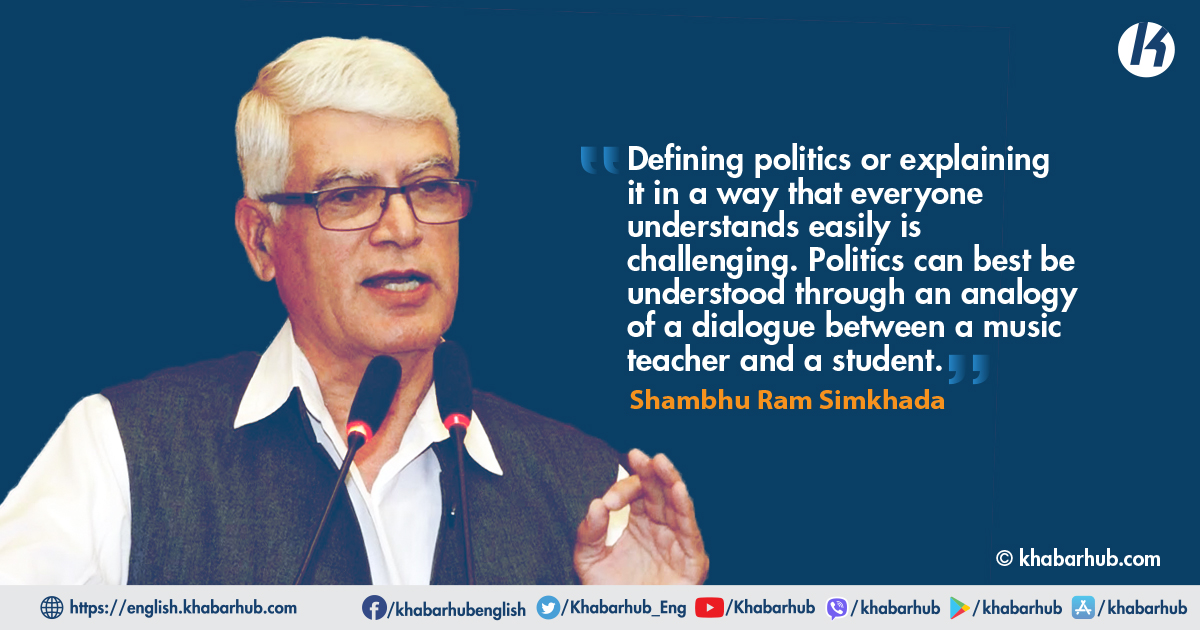
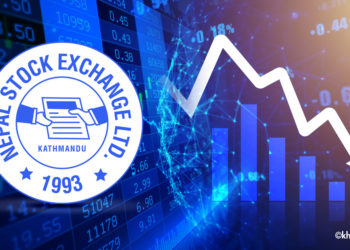
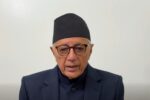
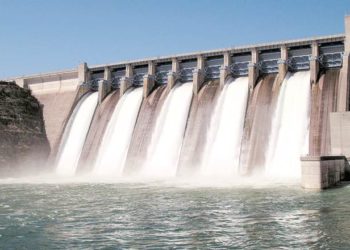
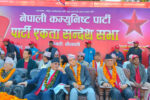
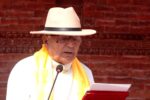

Comment